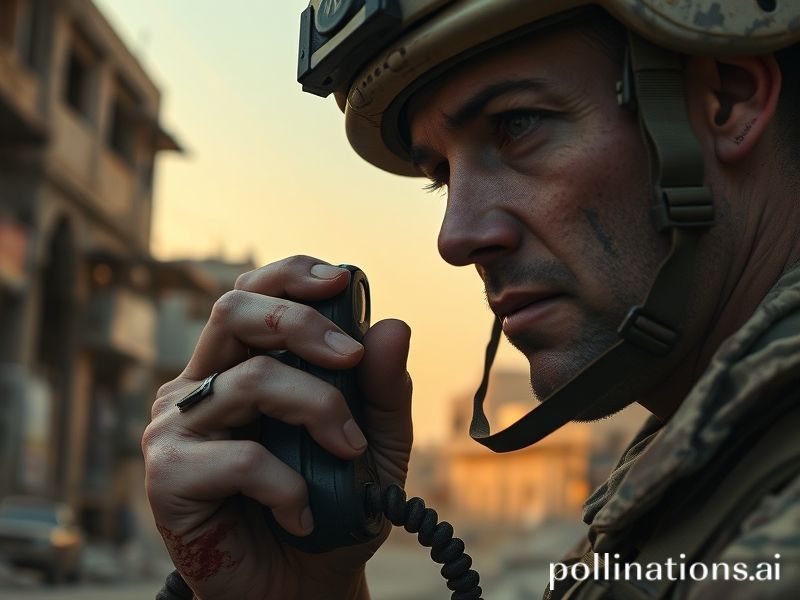Call of Duty: How a Video Game Became the World’s Loudest Forever-War
Call of Duty: The Planet’s Loudest Forever-War, Now Available in 4K
The yearly autumnal ritual is upon us again: leaves turn amber, clocks fall back, and another Call of Duty title parachutes onto hard drives from Lagos to Lahore, Seoul to São Paulo. Activision’s franchise—part video game, part geopolitical mood ring—has quietly become one of the most effective soft-power exports the United States never budgeted for. While the State Department struggles to explain democracy in 280 characters, Call of Duty conveys American foreign policy with the clarity of a flash-bang: shoot first, patch notes later.
Globally, the numbers read like Pentagon procurement slides translated into teenager. Over 400 million copies sold; annual revenues topping $3 billion—roughly the GDP of Sierra Leone, but with better killstreaks. In South Korea, PC bangs glow nightly with the cobalt haze of Modern Warfare lobbies, a digital DMZ where conscription-aged kids practice headshots instead of marching drills. Meanwhile, in the Persian Gulf, Emirati streamers monetize Warzone victories while the actual war in Yemen flickers on a second monitor like background ambience. Irony, unlike supply drops, remains free-to-play.
The franchise’s map rotation is a jet-lagged geography lesson. One round you’re breaching a Moscow metro, the next you’re sniping across a faithfully reconstructed Piccadilly Circus—because nothing says “international cooperation” like British civilians screaming in surround sound. The newest entry even features a fictional Urzikstan, a country that exists somewhere between Chechnya and Syria on the Risk board of the American imagination. Localized voice acting sells the illusion: Arabic signage, Cyrillic scrawls, and NPCs who swear convincingly in languages most players will never bother to learn. Imperialism has never been so multilingual.
Developers, bless their hearts, insist the stories are apolitical. This year’s campaign tasks a multinational task force with thwarting a rogue PMC trafficking chemical weapons—essentially the plot of every UN Security Council meeting, but with better lighting. The moral calculus is refreshingly binary: you’re either a “good guy with a gun” or a corpse providing negative K/D. Nuance is reserved for the microtransaction store, where Belgian players can still buy loot boxes despite their government outlawing them. Turns out borders are porous when there’s 2400 COD Points on the line.
The real battlefield, however, is bandwidth. From Manila’s net cafés to rural Romanian villages, teenagers measure prosperity in ping. A stable 20 ms connection is worth more than a passport; lag is the new class warfare. Governments have noticed. Iranian censors briefly blocked the game in 2020, citing “Zionist content,” then quietly unblocked it when they realized banning teenage rage is harder than banning actual protests. China mandates its own, censored version—no blood, no bones, victory poses replaced by respectful salutes—proving that even authoritarianism can’t resist seasonal skins.
And then there’s esports, the Olympics nobody asked for. The Call of Duty League hosts franchised teams with names like “Seattle Surge” and “Paris Legion,” as if colonial branding ever goes out of style. Players fly business class to LAN events in Toronto, visa issues permitting. Last year’s world champions, Atlanta FaZe, pocketed $1.5 million—coincidentally the same amount the U.S. spends every three hours in Afghanistan. One group gets fireworks and confetti; the other gets, well, actual fireworks.
All of this would be merely depressing if it weren’t so lucrative. Activision’s earnings calls read like arms-dealer press releases: “record attach rates,” “user engagement,” “recurring revenue ordnance.” Shareholders cheer every time a 14-year-old in Jakarta buys a tracer pack, blissfully unaware that the orange glow is just a digital flare over yet another proxy war. The kids, meanwhile, learn a curriculum no embassy could devise: borders are suggestions, languages are texture packs, and every problem has a 7.62 mm solution.
As winter settles and the next season drops—rumored to include a climate-crisis-themed battle pass—one truth remains unpatched: while diplomats argue over emissions targets, the globe’s youth are already fighting for control of a shrinking map. The killcam, as always, belongs to the house. And the house always wins—unless the servers crash. Which, given the state of the world, feels increasingly like a plan rather than a bug.







